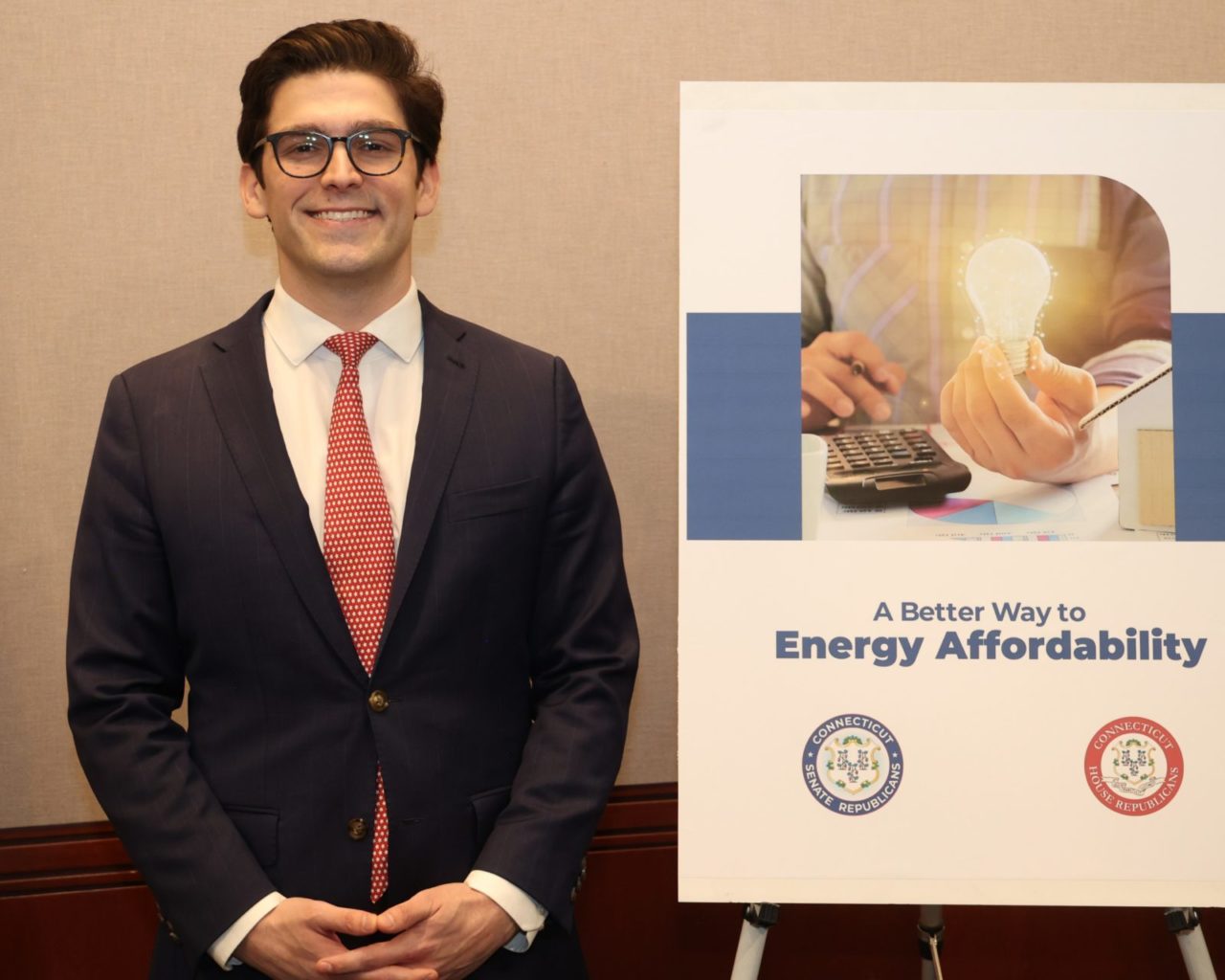Sen. Fazio, CT Republicans Unveil a Better Way to Energy Affordability
January 17, 2023FOR IMMEDIATE RELEASE
January 17, 2023
CT REPUBLICANS UNVEIL A BETTER WAY TO ENERGY AFFORDABILITY
Will Save Families Over $210 Per Year Immediately, More Over the Long Term
HARTFORD – Today Senate and House Republican Leaders detailed a comprehensive package of policy proposals (attached) to reduce the cost of electric bills and make energy more affordable over the long term.
The policies will reduce energy costs for CT families by over $362 million per year, saving the average household over $210 next year. In the long run, the plan will drive down costs by even more and implement important ratepayer protections against utilities.
The package of legislative proposals will address two major goals:
- Make energy more affordable and reliable, by reducing costs immediately as well as expanding and encouraging reliable and affordable generation over the long term; and
- Ensure strong oversight of utility companies to protect the best interest of ratepayers.
“Connecticut is one of the most unaffordable states to live in, with the highest energy costs in the continental United States. The rising cost of energy in our state has been an issue for far too long. It is past time for action to make energy more affordable and reliable,” said Senator Ryan Fazio (R-Greenwich), ranking member of the Energy & Technology Committee.
“No one should be struggling to keep the lights on or heat their home. We need independent oversight and policies that work for ratepayers and protect all our families. The policies we are sharing today will both reduce costs now, and in the future. They also put into place important protections for ratepayers and needed oversight of our utilities,” said Senate Republican Leader Kevin Kelly (R-Stratford).
“While it’s imperative to address short-term financial obligations, and this will help some, we must put forward best practices and legitimate long-term solutions. Some poor decisions in the past have put us in this current position and we can’t just put a band-aid on it. We must correct the mistakes and set the table for future success that reduces the obscene burden on ratepayers,” said Rep. Bill Buckbee (R-New Milford), House Ranking member of the Energy & Technology Committee.
“Wagging a finger at utility companies to grandstand for ratepayers when their frustration understandably boils over is a singular path that produces very little. We instead need an integrated approach that not only introduces systemic change to reduce monthly bills, but one that also examines to what extent residents’ financial stress is fueled by energy policy and goals adopted by the legislature and state agency bureaucrats,” said House Republican Leader Vincent Candelora (R-North Branford).
Connecticut ranks number one in the continental United States as the most expensive state for electricity (Source: Energy Information Administration via Ownerly October 2021 through September 2022). This January, our state utilities implemented shocking rate increases, raising everyone’s electric bills by at least 43 percent at a time when families already face historic inflation.
The proposals detailed by Senate and House Republicans include:
- Moving charges resulting from public policy decisions from ratepayer bills to the state budget. (estimated savings: $362 million annually)
- Bringing all clean energy sources into the state’s green energy strategy by adding nuclear power and all sources of hydro power to the state’s Renewable Portfolio Standard program.
- Improving the Standard Service Procurement process by examining the differing ways CT’s large utilities, small municipal owned utilities, and other states all procure power.
- Restoring independence to utility rate regulators by separating PURA from DEEP.
- Giving PURA more discretion and flexibility in decoupling to protect ratepayers.
- Establishing utility rate case oversight to ensure that resolutions of rate cases and settlements are made in the best interest of ratepayers and not for other political considerations.
###


